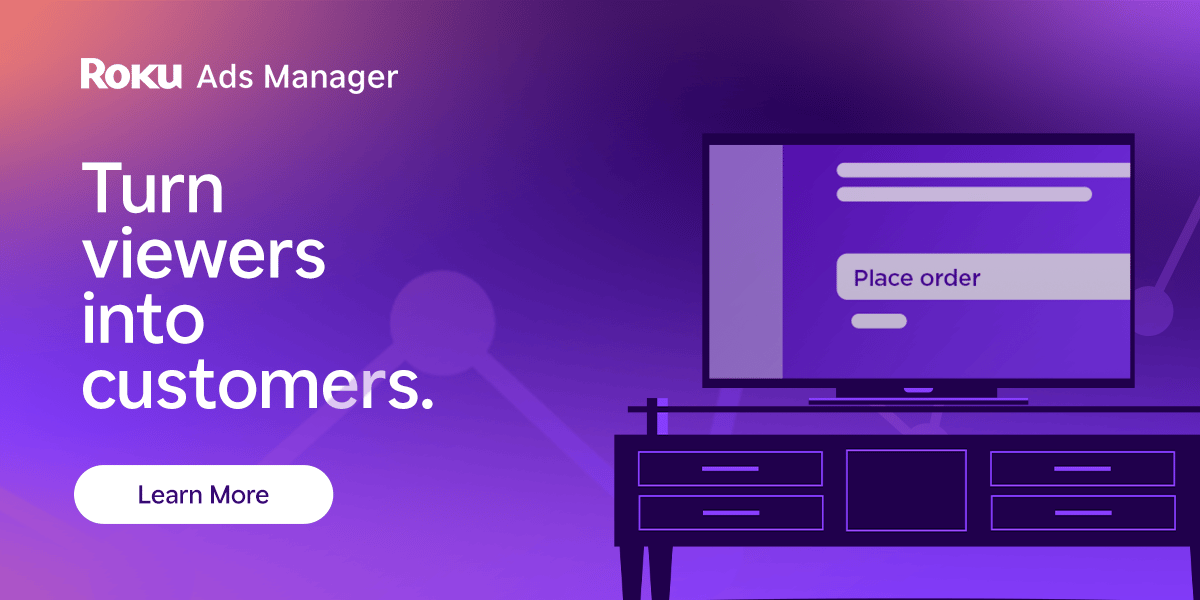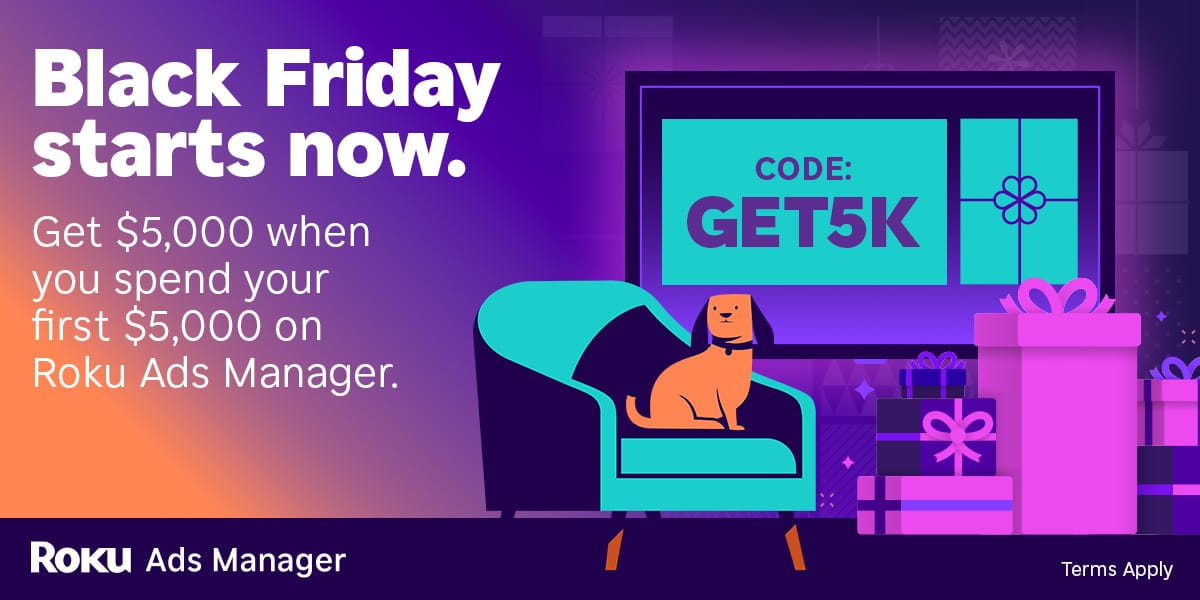Salutations, Olio aficionados! 👋
Welcome to the 202nd edition of Weekly Olio. We’re thrilled to introduce a fresh new twist to your Sundays: Publisher Parmesan, our hand-picked, thoughtfully crafted edition designed to spark inspiration and insights for the week ahead.
It’s the perfect way to unwind, recharge, and prepare for the week with something truly worth savoring.
If you’re new here and you’re looking for more long-form, crispy writing, click the link to subscribe under this GIF 👇

A word from our Sponsors…
Shoppers are adding to cart for the holidays
Over the next year, Roku predicts that 100% of the streaming audience will see ads. For growth marketers in 2026, CTV will remain an important “safe space” as AI creates widespread disruption in the search and social channels. Plus, easier access to self-serve CTV ad buying tools and targeting options will lead to a surge in locally-targeted streaming campaigns.
Read our guide to find out why growth marketers should make sure CTV is part of their 2026 media mix.
OpenAI’s Atlas and the Quest to Make the Internet All About ChatGPT
Last week, OpenAI unveiled its newest creation: Atlas, an AI-powered web browser.
In Sam Altman’s words, this isn’t just a browser — it’s a “once-in-a-decade opportunity to rethink how we use the web.” Atlas, he promised, would transform browsing from a solitary activity into a collaborative one, with ChatGPT acting as your ever-present co-pilot.
You could ask it to summarize an article, plan your trip, or — in “agent mode” — quietly add a box of chocolates to your shopping cart. It’s sleek, it’s futuristic, and it sounds like the next logical step for a company that wants to make AI feel essential to everyday life.
And yet, much of the internet has responded to Atlas with a shrug.
A Wall Street Journal columnist declared themselves a convert after testing AI browsers. But on Reddit, Hacker News, and corners of X where enthusiasm goes to die, the reaction was mostly muted: Cool demo. But… why?
Because that’s the thing about AI browsers — they’re trying to solve a problem no one really has.

AI browsers promise to make the web more efficient. They read, summarize, and sometimes act on your behalf. In theory, they should save time. In practice, they often waste it.
Take Wired journalist Rhys Rogers, who tested Atlas in everyday scenarios. When he asked ChatGPT which email he should respond to first, it advised him to prioritize one he’d already answered.
Not exactly the future of productivity.
Early users report similar experiences — AI agents that overthink simple tasks, integrations that break mid-action, and privacy prompts that feel unnervingly vague. For many, the benefits just don’t outweigh the friction of abandoning Chrome or Safari.
Add in legitimate concerns about data security and prompt injection attacks — malicious bits of code that can hijack an AI’s actions — and Atlas starts to look less like a revolution and more like an experiment.
OpenAI insists these are just early bugs. But it’s also not just about browsers.
Everything, Everywhere, All at Once — Inside ChatGPT
A few months before Atlas, OpenAI began rolling out app integrations inside ChatGPT itself — Canva, Spotify, Figma, Booking.com, Coursera, and others.
The idea was audacious: you could design a poster, book a trip, or build a playlist — all without leaving ChatGPT.
On paper, it sounded like the birth of an AI-powered “super app.” In practice, it’s been messy.
Users quickly found that ChatGPT’s Canva plugin could generate designs, but many were mediocre or broken. Some links led to error pages. Others delivered layouts that looked like they were stuck in 2013.
Sure, you can argue that better prompts might yield better results. But by the time you’ve re-engineered your request three times, you could’ve just opened Canva yourself and found a working template.
It’s not that these integrations are useless — they just aren’t necessary.
And that’s the real problem OpenAI faces. For all its ambition, most of its recent launches don’t seem to make life meaningfully easier. They’re novel, yes. Indispensable? Not yet.
The Super App Dream
So why does OpenAI keep launching products that feel half-finished?
Because it’s playing for something much bigger.
OpenAI doesn’t just want to build apps — it wants to build the platform. The one you never leave. The operating system for your digital life.
Every prompt, every search, every tiny decision — ideally, all of it happens through ChatGPT.
If that sounds familiar, it’s because there’s a precedent for it: WeChat.
In China, WeChat evolved from a simple messaging app into a universe — chat, payments, shopping, ride-hailing, social media, even government services — all in one place. You don’t browse the internet on WeChat; WeChat is the internet.
OpenAI’s integrations, its AI browser, even its pricing experiments — they all point to the same ambition: to make ChatGPT the WeChat of the West.
Atlas isn’t just a browser; it’s a gateway drug. Once you start using it, you’re not supposed to leave.
The New Enterprise Approach to Voice AI Deployment
A practical, repeatable lifecycle for designing, testing, and scaling Voice AI. Learn how BELL helps teams deploy faster, improve call outcomes, and maintain reliability across complex operations.
The Economics of Dependence
There’s also a harder reality driving this strategy: AI is expensive.
Every ChatGPT query runs across vast clusters of GPUs, consuming electricity and processing power at enormous scale. These aren’t marginal costs — they’re existential ones.
Running large models is so costly that OpenAI reportedly burns through hundreds of millions of dollars a year just keeping its systems online. And because the company isn’t profitable yet, it’s under pressure to turn usage into habit, and habit into revenue.
Hence the integrations. The free plans. The price drops. The push to make ChatGPT feel indispensable before charging again.
Remember when ChatGPT Plus launched in India at ₹399 per month? Now it’s free for a year.
That’s not generosity; that’s strategy. The goal is to make ChatGPT a reflex — something you use for writing, searching, designing, booking, even shopping — so that when the free ride ends, you’ll find it hard to quit.
To make that work, OpenAI needs two things: users and data.
Every question you ask, every mistake you correct, every preference you reveal — that’s training data. And that data is what makes the product better. Better products mean more users. More users mean more data. It’s a self-reinforcing loop.
OpenAI doesn’t just want to help you browse the web. It wants to be your web.
Betting the Future on Indispensability
There’s a certain audacity to all of this — a company trying to reimagine the internet in its own image, even before its products fully work.
And yet, that’s what makes OpenAI fascinating. It’s operating on venture logic: move fast, burn cash, dominate distribution, then figure out the economics later.
Atlas may not be a great browser today. Its integrations may be clunky, even unnecessary. But the company is betting that over time, the combination of convenience and habit will pull people in.
If it succeeds, ChatGPT won’t just be a tool — it’ll be an interface for everything.
If it fails, it’ll be a reminder that even the smartest AI can’t fake product-market fit.
For now, OpenAI seems content to try everything, everywhere, all at once — and hope that something sticks.
Interested in learning more about AI? Check out our previous coverage here:
CTV ads made easy: Black Friday edition
As with any digital ad campaign, the important thing is to reach streaming audiences who will convert. Roku’s self-service Ads Manager stands ready with powerful segmentation and targeting — plus creative upscaling tools that transform existing assets into CTV-ready video ads. Bonus: we’re gifting you $5K in ad credits when you spend your first $5K on Roku Ads Manager. Just sign up and use code GET5K. Terms apply.
That’s all for this week. If you enjoyed this edition, we’d really appreciate if you shared it with a friend, family member or colleague.
We’ll be back in your inbox 2 PM IST next Sunday. Till then, have a productive week!
Disclaimer: The views, thoughts, and opinions expressed in the text belong solely to the author, and not necessarily to the author's employer, organization, committee or other group or individual.




